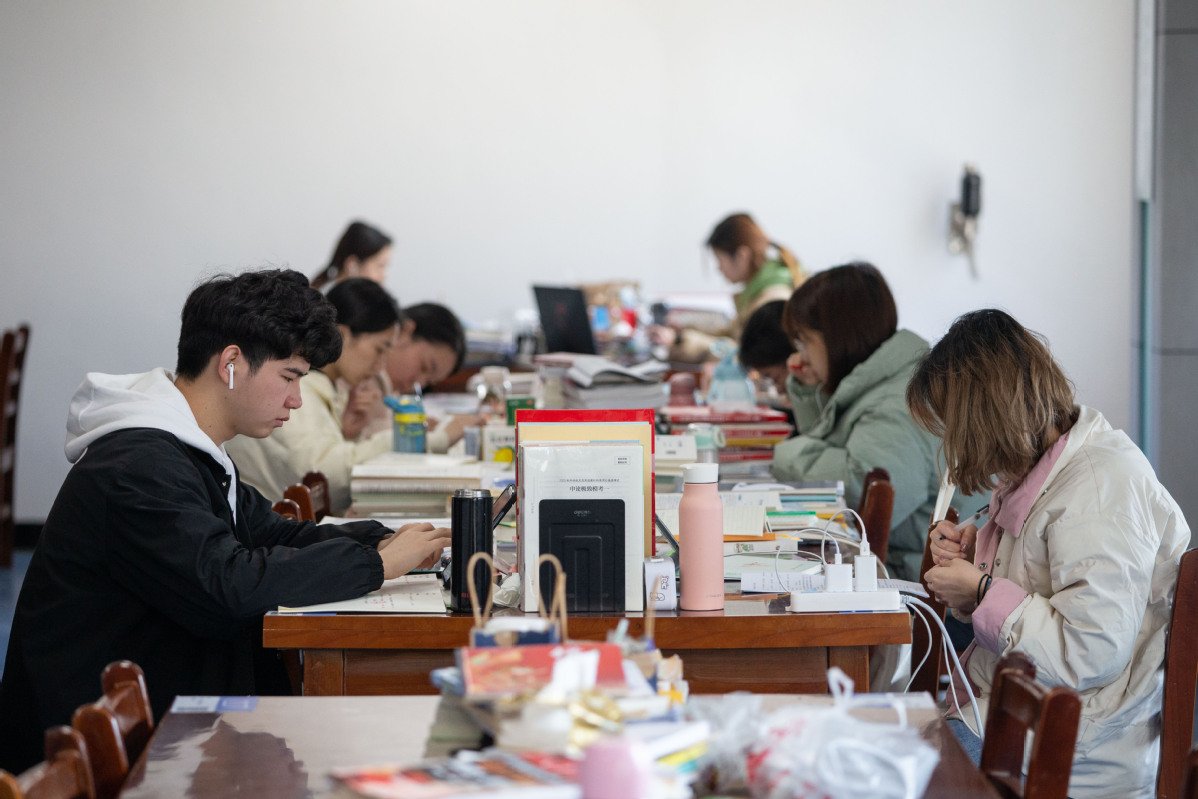【China Daily】Postgraduate exam takers set record
Source: China Daily 27-Dec-2021
Original link: http://www.chinadaily.com.cn/a/202112/27/WS61c92386a310cdd39bc7d9c2.html

Millions of college students took part in the national postgraduate entrance exam, which started on Saturday and will end Monday, as graduates face unprecedented employment pressure.
A record 4.57 million people registered to take the exam-800,000 more than last year, according to the Ministry of Education.
This marks a year-on-year increase of about 21 percent, the second highest growth rate in the past 20 years, second only to the 22 percent increase recorded in 2018, ministry data showed.
The actual number of people taking the exam was not available but is expected to be slightly lower than the number of registrants.
With a record 10.76 million university students expected to graduate next year, a survey by education website eol.cn found that the primary reason more students are taking the exam is to improve their competitiveness in the job market.
When asked about the reasons they wanted to pursue a master's degree, 59 percent of respondents said it would improve their employability; 49 percent said they want to obtain more knowledge; and 33 percent said they are reluctant to end campus life.
The report also found that the number of applicants to less famous universities has significantly increased this year, as more students believe being enrolled at any university for postgraduate studies is better than competing fiercely for a spot at more well-known ones and facing the prospect of waiting for another year for a chance to enroll. Test takers can only apply for one major at one university for postgraduate studies.
Examples of the spike include Xizang Minzu University in Xianyang, Shaanxi province, where the number of applicants increased 123 percent this year; Jiangxi Agricultural University, which saw an 80 percent increase in applicants; and Hunan University of Technology and Business, which saw a 72 percent rise. Conversely, the number of applicants at the more notable Renmin University of China grew only by 4 percent year-on-year.
Moreover, more students from famous universities have chosen to pursue postgraduate studies rather than joining the work force right away.
Data from Fudan University in Shanghai showed about 46 percent of its graduates last year have chosen to pursue postgraduate studies, up from 37 percent in 2018. The percentage of college graduates from University of Science and Technology Beijing deciding to further their studies rose from 41 percent in 2018 to 46 percent last year.
Liu Kaixuan, a senior undergraduate student at Beijing Jiaotong University, said she decided to take the exam and pursue a master's degree to expand her knowledge in her major, which is communication technology.
"The field is developing very quickly, and I am afraid that what I have learned during my undergraduate studies is not enough to keep up with the latest trend," the 21-year-old said.
Liu has kept a tight schedule in the past several months to prepare for the exam, getting up at 6 am and going to bed after 11 pm.
"I do everything to make sure I am in the best condition. I only eat healthy food, exercise regularly-but not too much-and sleep regularly," she said.
Preparing for the exam is a lonely and difficult journey because your classmates might have either already found jobs or are studying to get into different universities and pursue different majors, and there are no teachers to guide you on how to improve your chances, she said.
"I had to constantly cheer myself up, try to find new motivations every day and not be influenced by other things," she said.
Xiang Xinxu, a senior at Renmin University majoring in philosophy, said most of his classmates have chosen to take the exam because it is difficult for liberal arts students to land a good job with bachelor's degrees, and the COVID-19 pandemic has dissuaded students from furthering their studies abroad.
He started preparing for the exam in summer and has rarely taken any breaks in the past several months, said Xiang, 21.
"There is no backup plan," he said. "If I do not get enrolled this year, I will continue and try my luck next year."
Given the considerable increase in the number of participants and sporadic COVID-19 outbreaks in different regions, the ministry has guided local education authorities to take targeted measures to ensure the safety of exam participants, ministry spokesperson Xu Mei said.
For provincial regions that are dealing with COVID-19 outbreaks, emergency plans have been made to make sure students can take the test locally, rather than taking it at their targeted universities in other regions, she said. More test centers have been set up to meet students' demands, including at quarantine sites and even at hospitals for participants under COVID-19 treatment, she said.

